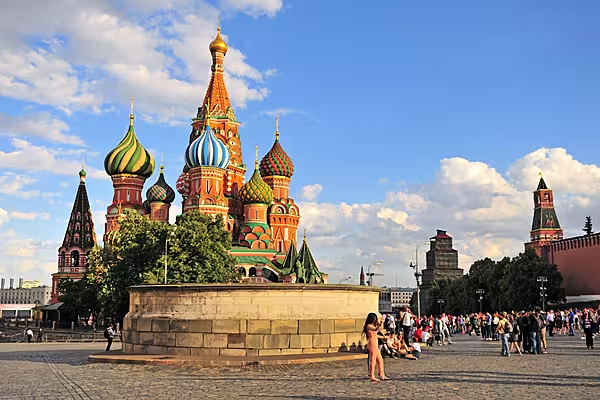Russian retailer Magnit has reported a revenue and profit jump in the first half of this year, boosted by strong sales growth that it said has accelerated into the third quarter.
Inflation soared in Russia after the West targeted Moscow with sanctions over its actions in Ukraine, crippling supply chains, but the pace of cost increases has gradually slowed.
Largely strong financial results from food retailers including Magnit, which operates almost 27,000 stores nationwide, suggest some businesses may be weathering the effects of sanctions and trade restrictions imposed on Russia better than others.
That has added credence to the government's rosier economic forecasts seen by Reuters this week. Russia's economy will contract less than expected and inflation will not be as high as projected three months ago, economy ministry forecasts showed.
First-Half Highlights
Magnit on Friday said net income increased by 39.6% in the first half of 2022 to RUB 32.0 billion ($536 million), predominantly driven in the second quarter by one-off effects of foreign exchange gains on import operations and interest income on bank deposits.
Like-for-like sales grew 12.6% and that expansion is accelerating so far in the third quarter, Magnit said, exceeding the second quarter's average results.
"Average ticket growth remains strong despite (the) deflationary environment on (a) month-to-month basis," Magnit said.
Total revenue rose to RUB 1.1 billion roubles, driven by strong sales growth and the consolidation of rival Dixy's business that it purchased last year, up 19.1% year-on-year when accounting for the Dixy buy.
Read More: Russia's Magnit Launches Retraining Programmes For Unemployed Workers, Refugees
Capital expenditure dropped 8.3% year-on-year in the first half to RUB 23.4 billion roubles, driven by some slowdown in Magnit's store opening and refurbishment programme. The company opened 851 stores on a gross basis in the period.
Magnit, which in April said it was reviewing its full-year forecast due to market uncertainty, flagged supply-chain disruptions that led to losses of fruits and vegetables in international transit.
News by Reuters, edited by ESM – your source for the latest retail news. Click subscribe to sign up to ESM: European Supermarket Magazine.











